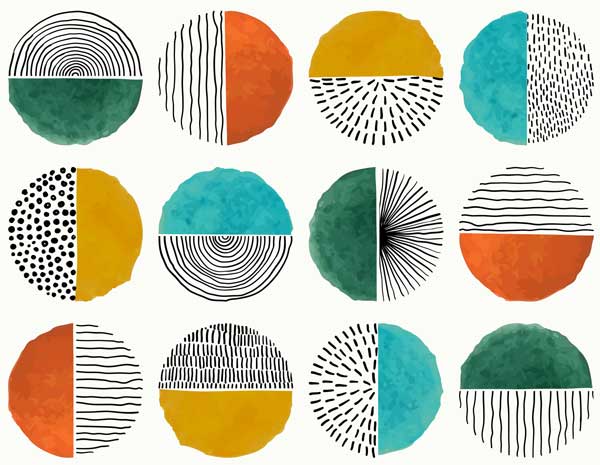For most, we want to be the best and do our best. And, we hold that expectation with pride.
I like to say that my high expectations [which are subjective] of myself allow me to produce the best outcomes.
Even as a play in my mind what it means to be the best — to want the best — there is tension between the desire and the realities of day-to-day life that will allow this desire to come to fruition.
There is a cost to being the best, or at least striving towards a future self, which is ever-changing. We see this with Olympic athletes who achieve … death-defining feats … becoming the fastest person on the planet, Usain Bolt, only to have that record bested by another athlete, Noah Lyles.
Subjectively and societally, being the best can be viewed as a constant movement toward maximization.
Like the high performer at your organization. Which could be you!
Sometimes, we just have to choose to be good enough.
 Rarely do we see the complete picture of what it would take to be the best; to perform at one’s maximum.
Rarely do we see the complete picture of what it would take to be the best; to perform at one’s maximum.
In a culture where excellence takes center stage, good enough is usually not good enough.
And that starts with understanding the goals and capacity of the ‘it’ we are moving towards.
What is it that you wish to achieve?
Answering this question calls for introspection — identifying the value and purpose contributing to the goals — and the strategies that will enable you to obtain the established completion point.
Once a choice is made, there is a need to gather information to inform its achievement. The trick is to seek reputable sources, given the plethora of conflicting information on the World Wide Web and conflicting practices.
There is plenty of information out there that signals what the best looks like.
So, filtering our extraneous information calls for a consciousness of our values, while limiting input. Not everything we desire requires our attention; therefore, we need to be intentional about where we place our attention.
Learning to be selective in exercising our choices supports our well-being.
 Discernment and critical thinking are called for when assessing the information that will inform our choice.
Discernment and critical thinking are called for when assessing the information that will inform our choice.
Making a decent enough decision will be facilitated by examining the options and being clear about what matters and how much they matter.
Always keeping in mind that mistakes may be corrected and decisions can be reversed; perfectionism is not required.
Good enough is the knowledge that we are not seeking perfection. It honors the emotional and intellectual capital it took to achieve what was achieved, be it a stretched project at work or a personal milestone.
To be sufficiently good involves consistent discipline with the satisfaction of a task well done. It was not perfectly done, not done to our maximum capacity, yet done with confidence that it was adequate.
An element of good enough is accepting our efforts are a work in progress.
While we have an eye on the task and doing a ‘good job,’ we also hold expectations with ease, and we can let the work go at a designated completion point.
For some, good enough is at 80%. For others, it is 95% of the desired outcome.
Understanding that these benchmarks are a construct of the mind — a nimble roadmap — to respond appropriately to unpredictable conditions is a good strategy.
It is highly unlikely we will be able to anticipate with 100% accuracy how a choice will make us feel.
Good enough takes into consideration:
- The long work hours of research (data collecting and analysis) in making the decision.
- Wading through the increasing list of options and the cognitive toll associated with not making a mistake.
- Anxiety due to constantly navigating towards the best.
- Time away from loved ones.
- Less leisure and downtime to be creative and play.
 Acceptable in standard requires, on some level, humility, patience, discipline, and a balanced perspective. It is not about perfectionism or maximizing what we’re doing. It is subjective and based on a future feeling that we hope will come to fruition, yet we cannot guarantee it.
Acceptable in standard requires, on some level, humility, patience, discipline, and a balanced perspective. It is not about perfectionism or maximizing what we’re doing. It is subjective and based on a future feeling that we hope will come to fruition, yet we cannot guarantee it.
In a culture where the focus is on excellence, good enough is usually the best we can do.
What principles will guide your choices to be good enough?

 HBR’s 10 Must Reads publications are an excellent way to gain perspective on a business theme — be it On Change Management, published in 2011.
HBR’s 10 Must Reads publications are an excellent way to gain perspective on a business theme — be it On Change Management, published in 2011.
It is safe to say that most of us in the world of work might have experienced an organizational change initiative, whether mass layoffs, mergers, restructuring, technical adaptations, or new performance standards.
Beer and Nohria state in “Cracking the Code of Change,” about 70% of all change initiatives fail because they exert a heavy toll on both the talent and the finances of the organization.
With the high failure rate of change initiatives, what can we learn?
Transformation takes time and demands leaders to emulate and personify the core values of the organization.
Leaders who model the new change, while providing coaching and support for their talent, have greater success in their change initiative. They understand their talents and their competing commitments — a sense of loss for what is known, having insufficient input into the process, or not having a forum to express concerns.
The case studies presented show commitment to change is uneven. And, understanding the complex behaviors of those engaged in the change is an improvisational art of walking the talk, listening, learning, and applying the appropriate strategy for the situation. And so much more.
Managing change initiatives is tough. Those who are being asked to change must recognize what needs to be done, and must also want to do it.
Leaders have a great responsibility to guide the vision of the change, while encouraging an environment of learning how to learn.
These articles are pre-COVID, and it would be intriguing to read how the pandemic has impacted the ways in which organizations approach their change initiatives now.




